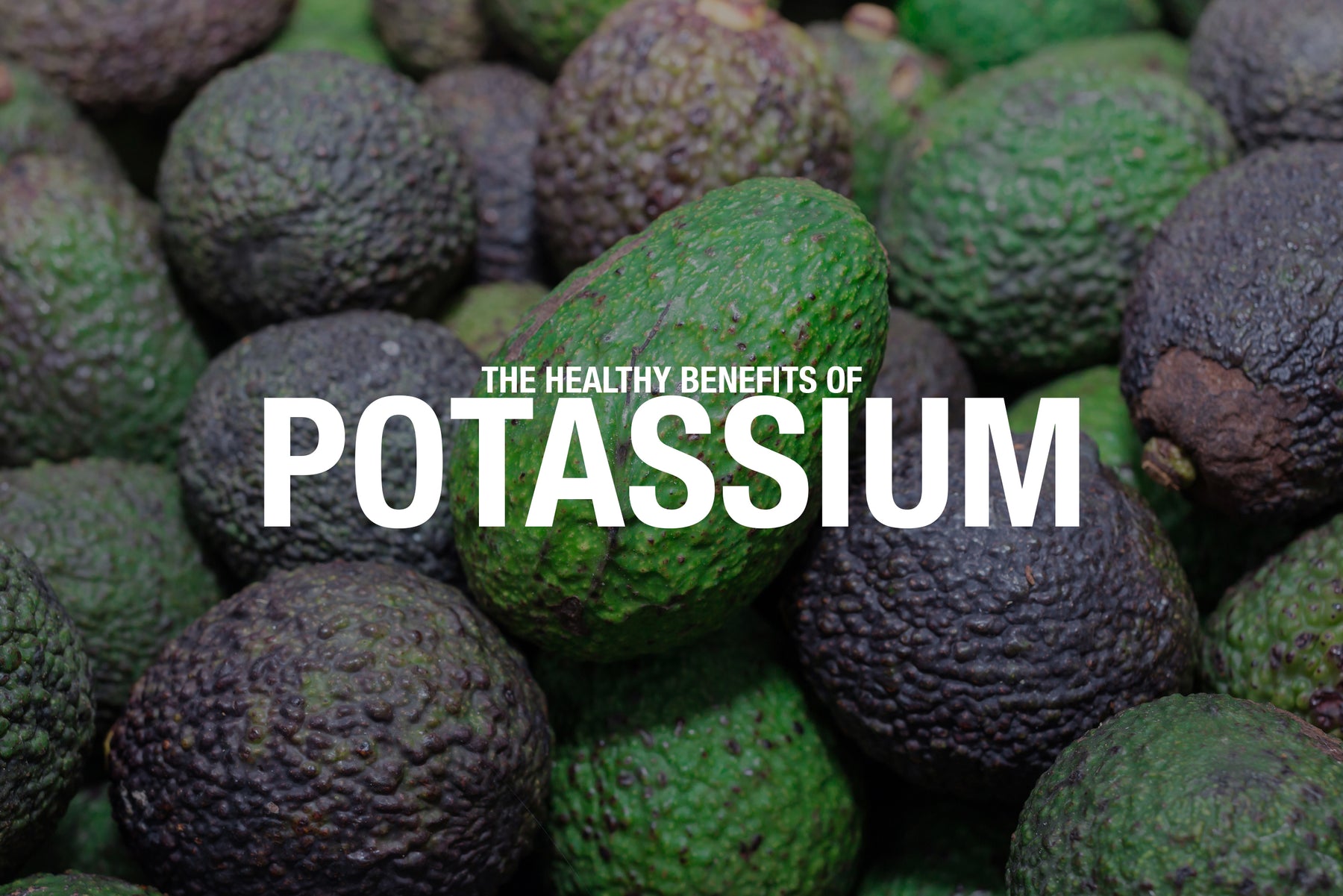On orders over $30!

The Healthy Benefits of Potassium
Potassium is a mineral that your body needs to stay healthy in a number of ways. It helps the body maintain a healthy blood pressure and fluid balance; it controls the electrical activity of the heart and other muscles, counteracts the effects of sodium in the body and makes the body more alkaline. Studies have shown that increased consumption of potassium correlates to a decreased risk of stroke and heart attack as well as decreasing the risk of kidney stones. Another benefit of adequate potassium intake is that it helps maintain lean muscle mass. When a body is acidic, which is typical with a diet high in meat, dairy and cereal grains, it can lead to muscle wasting and a loss in bone density.
How much potassium do you need?
The body requires a bare minimum of 100 mg per day to function but the ideal intake is around 4,700 mg per day for an adult. However, the typical intake for most adults is around 2,600 mg per day. This is largely due to eating processed foods, which are high in sodium, and not enough fresh vegetables and other whole foods. Also, processing foods generally reduces the nutrient content, lowering the amount of potassium and other vitamins and minerals your body needs.
The best way to get any mineral or vitamin is through eating fresh, whole foods. It’s not just the intake of one particular substance that brings the health benefits but the synergistic combination of many substances found in the foods that has the maximum effect on your health. However, taking nutritional supplements can help when diet alone isn’t providing enough.
Sources of potassium
There are quite a few foods that are high in potassium including avocado, sweet potato, cantaloupe, mushrooms, beat greens, beans (white, soy, Lima), banana, tomato, and winter squash. White potatoes are actually the highest in potassium content but mainly that’s because of the skin. Eating the potato without the skin greatly reduces its nutritional benefits. You can even make a nutritious potassium broth that is cheap, easy and very nourishing. The general recipe for it is a little boring, just simmer potato peels, celery, onions and parsley for a few hours and drink the broth. Not terribly tasty but it will get the job done. If you want to make a broth that actually tastes good too here is a recipe you can use. (You can also play around adding other vegetables and flavors to make your own version.
Ingredients: (use all organic if possible)
- 2 onions
- 6-8 carrots (with skin)
- 2 potatoes (with peel)
- 2 tomatoes (raw and/or sundried)
- 5 stalks of celery
- 1 bunch of parsley, minced
- 1 head of cabbage, (red or green)
- 1 bunch of broccoli (including stems)
- 1 bunch of spinach (including stems)
- 4 cloves garlic, minced
- 3 1 inch slices of ginger root, optional
- 2 bay leaves, optional
- ¼ cup sea vegies (Wakame, Nori, Dulse, Kombu or Hijiki), may substitute 3 teaspoons miso
- 8-10 cups filtered water
Cooking Instructions:
- Clean all vegetables thoroughly
- Chop vegetables
- Place all ingredients in a large pot and bring to a boil. Lower heat to medium-low
- Cover and cook for 30 minutes or until vegetables are tender
- Strain and get rid of all solids (you can freeze the vegetables for future use)
Drinking the broth is a great and tasty way to get potassium and other essential nutrients your body needs to recover your health and stay healthy.
Check out these 10 benefits of potassium!


Leave a comment